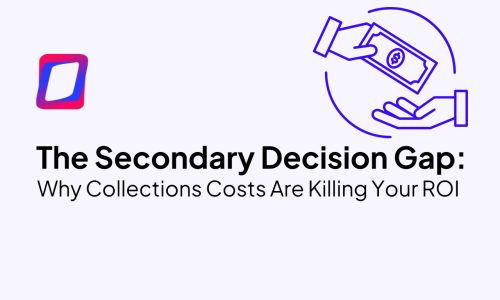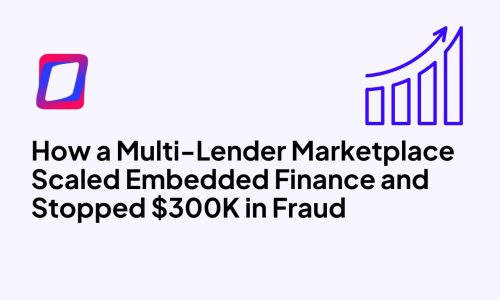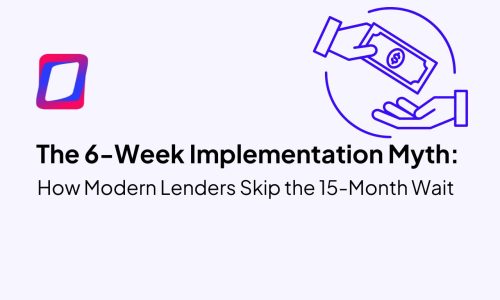MeasureOne’s CEO Elan Amir Shares the Power of Consumer Permission Data in Lending
Unlocking Lending Potential: Exploring Consumer Permission Data with MeasureOne’s CEO Elan Amir
Consumer permission data has proven to be a groundbreaking catalyst, changing the way lenders make informed decisions and customize offers to meet individual needs. On this episode of The Lending Link podcast, MeasureOne’s CEO, Elan Amir, sheds light on the transformative impact of permission data on the lending landscape.Hosted by Rich Alterman, the podcast delves into key insights and highlights the pivotal role of consumer permission data in achieving financial inclusion.
ENHANCING UNDERWRITING WITH PERMISSION DATA
Lenders now leverage permission data to enhance their underwriting processes, leading to better conversion rates and real-time transactions. The integration of permission data offers a strategic advantage, empowering lenders to gain competitive edges in the market. With up to 80% conversion rates for users, permission data is a valuable tool for lenders seeking growth and success.
THE POWER OF PERMISSION DATA FOR LENDERS
Elan emphasizes how lenders view permission data as a powerful incentive for providing top-notch services to their customers. Understanding the significance of consumer consent and building trust enables lenders to forge strong partnerships with their clients, improving customer satisfaction and loyalty.
SEAMLESSLY INTEGRATING WITH MEASUREONE’S PLATFORM
Technical aspects of integrating with MeasureOne’s platform are explored, as Elan Amir explains the company’s ability to handle data from over 10,000 unique sources. MeasureOne’s three-layered API system simplifies the integration process, allowing lenders to access vital information, such as employment status, through a single API endpoint. MeasureOne’s focus on the Indian market also opens up new opportunities for global financial inclusion.
PUTTING CUSTOMERS AT THE CENTER OF PRODUCT DEVELOPMENT
MeasureOne’s customer-driven approach to product development is highlighted. By letting customers dictate the extent of information released, MeasureOne empowers consumers and strengthens their bond with the company. The emphasis on obtaining consumer consent showcases MeasureOne’s commitment to ethical data-handling practices.
ADVANCING FINANCIAL INCLUSION WITH CONSUMER PERMISSION DATA
Elan Amir emphasizes the immense value of consumer permission data in advancing financial inclusion. MeasureOne provides new data to lenders and financial service providers, which is vital in bridging gaps and serving underserved populations. The implementation of two-factor authentication ensures security without compromising accessibility.
NAVIGATING DATA PRIVACY AND COMPLIANCE WITH MEASUREONE
The episode concludes with a discussion on the role of legal advice in handling consumer permission data. Rich and Elan delve into the future of open banking data and share insights into navigating data privacy and compliance issues. Data security and consumer consent remain at the forefront of MeasureOne’s operations.
The profound impact of consumer permission data on the lending industry becomes evident. MeasureOne’s innovative solutions and commitment to financial inclusion and data privacy make them a trailblazer in the fintech landscape. Tune in to The Lending Link podcast to stay informed on the latest trends and innovations in lending and financial services.
FAQs
What is consumer permission data?
Consumer permission data refers to the information individuals willingly provide to lenders and financial institutions for making informed decisions about lending products and services.
How does permission data enhance underwriting?
Permission data enables lenders to understand a borrower’s financial behavior better, leading to improved underwriting processes and higher conversion rates.
What makes MeasureOne’s platform unique?
MeasureOne’s platform stands out due to its ability to seamlessly handle data from thousands of sources, simplifying the integration process for lenders.
How does MeasureOne prioritize data privacy?
MeasureOne prioritizes data privacy by emphasizing the importance of obtaining consumer consent and maintaining data security through two-factor authentication.
How does permission data contribute to financial inclusion?
Permission data provides lenders with valuable insights into underserved populations, enabling them to design products and services that cater to the needs of a diverse customer base.
ABOUT ELAN AMIR
Elan brings a unique combination of management, strategy and technology expertise, leading organizations from start-up to scale. Before joining MeasureOne, Elan served as Chief Product & Technology Officer at SpringboardAuto.com, a SaaS-based auto-finance company serving consumers and financial institutions, and at Prosper Marketplace, a leading marketplace lending company. Prior, Elan served nine years as CEO of Bivio Networks, a cyber-security solutions provider. Elan received his PhD and MS in Computer Science, and a BS in Electrical Engineering and Computer Science from UC Berkeley.
Be sure to follow Elan and our host Rich on LinkedIn, and for the latest GDS Link updates and news, follow us on Twitter and LinkedIn. You can subscribe to the Lending Link on Apple Podcasts, Spotify, Google Play, YouTube, or wherever you prefer to listen to your podcasts!
Recent articles

The Secondary Decision Gap: Why Collections Costs Are Killing Your ROI
Read article
How a Multi-Lender Marketplace Scaled Embedded Finance and Stopped $300K in Fraud
Read article





